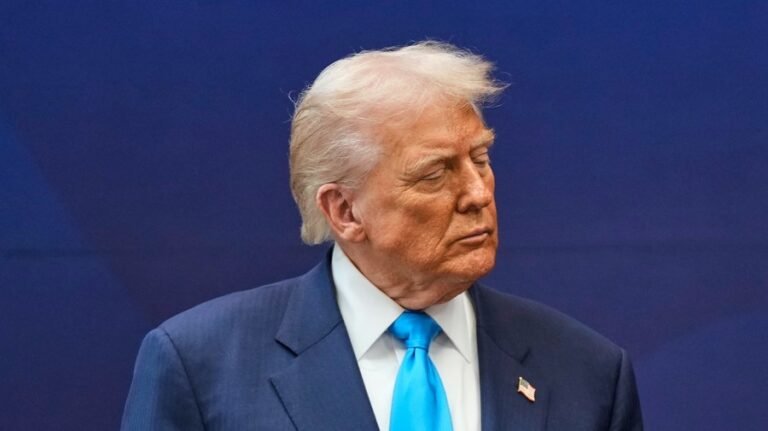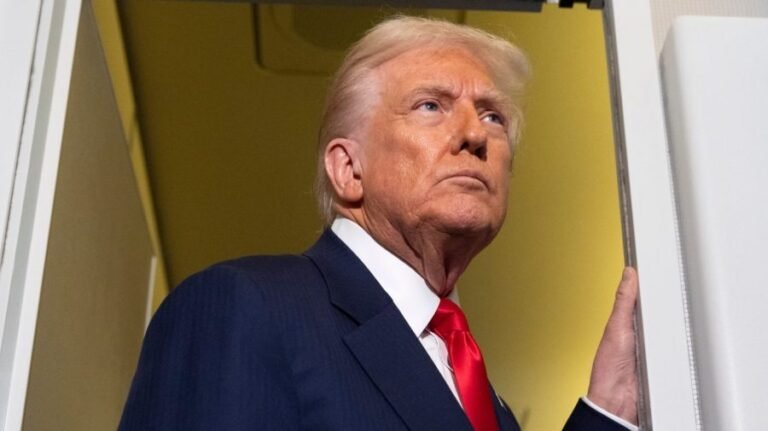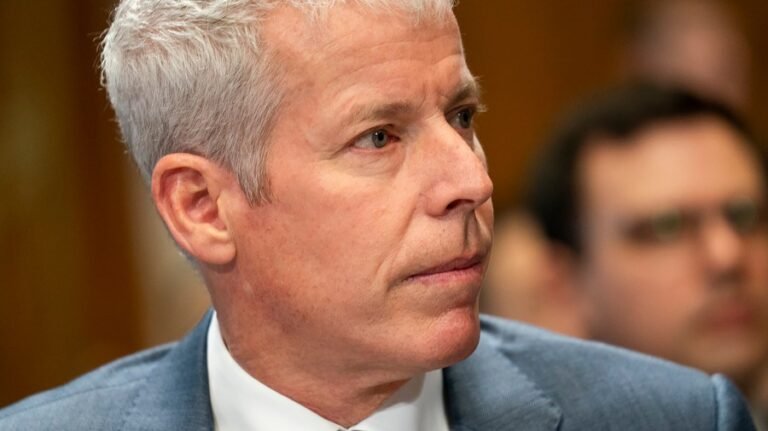
Sen. Todd Young (Ind.), the Republican senator who drafted the legislation that became the foundation of the CHIPS and Science Act, said the law was never intended to let the federal government take a major stake in Intel or any other major company.
“For those of us who voted for the legislation, I don’t know of anyone who thought this was allowed under the law,” he said when asked about President Trump’s deal to take a 10 percent stake in Intel in exchange for the roughly $11 billion in federal subsidies the company has received.
The legislation provided federal subsidies to domestic semiconductor manufacturers, part of a push to protect the domestic industry.
Trump has argued it is right for the government to get a stake in Intel given the subsidies that were provided to business through the legislation.
But Young said those voting for the bill would not have anticipated the government taking stakes in companies.
“There are clear concerns about precedent here and also concerns about what is allowed under the law. The intent was not for this to happen under the law,” Young said, noting he played a central role in drafting the legislation.
The Indiana senator said he will take up the administration’s offer to more fully explain its rationale.
“The administration’s made themselves available to explain their thinking to me on this matter and I look forward to taking them up on it,” he said.
Young said he’s glad Trump has signaled he’s interested in ensuring Intel’s success as one of the United States’s biggest domestic semiconductor manufacturing, citing the national security stakes in the company’s future.
“I am glad that the administration is focused on Intel’s success because we do need manufacturing capacity for our war fighters and for our broader economic security and I share that objective,” he said.
Asked about criticisms from fellow Republicans that giving the federal government a stake in the company might end up hurting its competitiveness in the marketplace, Young responded: “It remains to be seen.”
Commerce Secretary Howard Lutnick, who helped put together the deal to give the federal government a sizable stake in Intel, pushed back against criticisms from conservatives such as Sen. Rand Paul (R-Ky.) that it’s a “step toward socialism.”
Lutnick argued in an interview with Fox News’s “The Ingraham Angle” that it’s “fair and smart” to give American taxpayers “equity” in Intel in return for billions of dollars in investment.
“Come on, let’s take care of the American taxpayer,” he said. “That is not socialism. I will tell you what that is. That’s the best businessman in the United States of America in the Oval Office doing fair things for us.”
Kevin Hassett, the director of the National Economic Council, explained in a CNBC interview Monday that the federal government would receive non-voting shares of the company and would not dictate business decisions.
“The equity is not voting so there’s not going to be government intrusion into the business of Intel. It’s more like a down-payment on a sovereign wealth fund, which many, many countries have,” he told CNBC’s “Squawk Box.”
Some prominent Republicans have balked at the federal government taking a large stake in a major tech company.
Sen. Thom Tillis (R-N.C.) told journalist Major Garrett he feels “uncomfortable” about Trump’s use of federal power to influence decision-making not just at Intel but at other major companies.
“I don’t care if it’s a dollar or a billion-dollar stake,” Tillis said. “That starts feeling like a semi state-owned enterprise a la CCCP,” referring to the acronym for the former Soviet Union.
Former vice president Mike Pence told Bloomberg he has “great concerns” about the U.S. government having “golden shares” in Nippon Steel or “taking a percent of Intel.”


